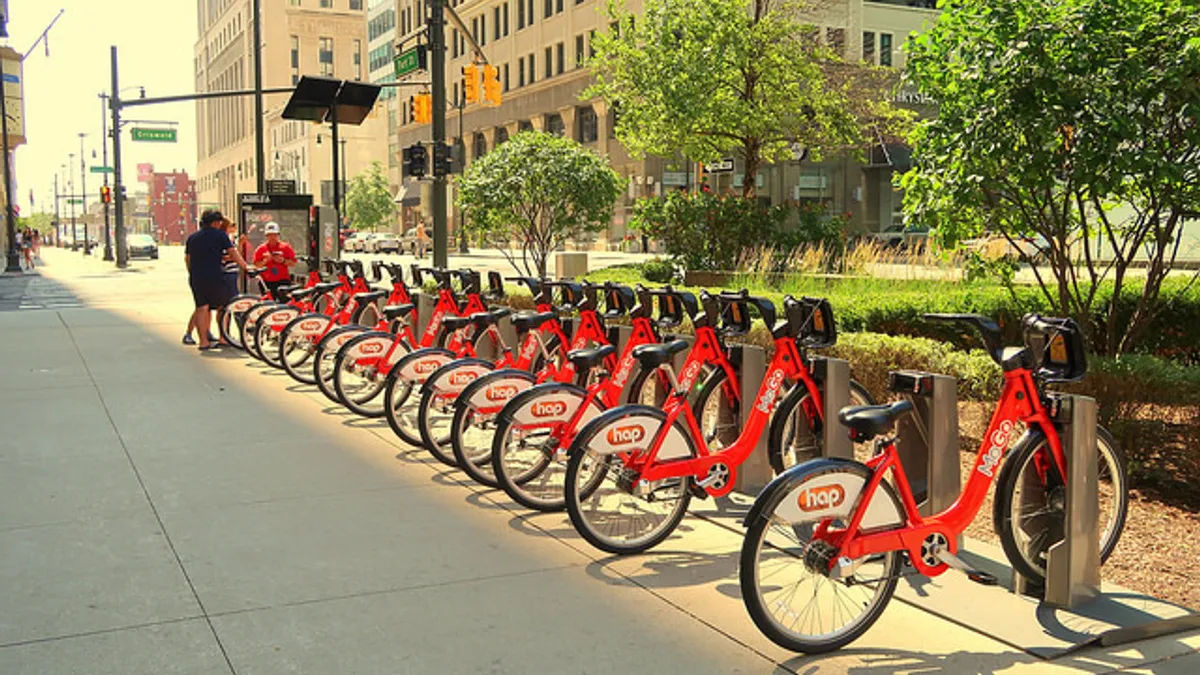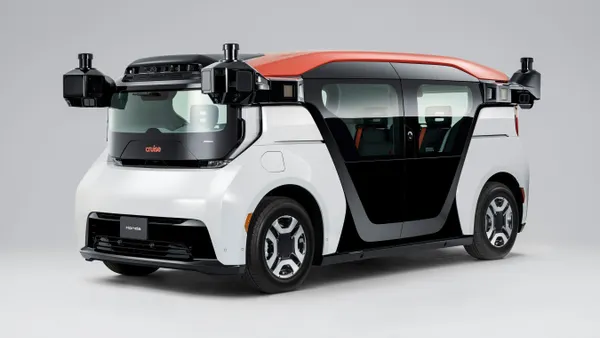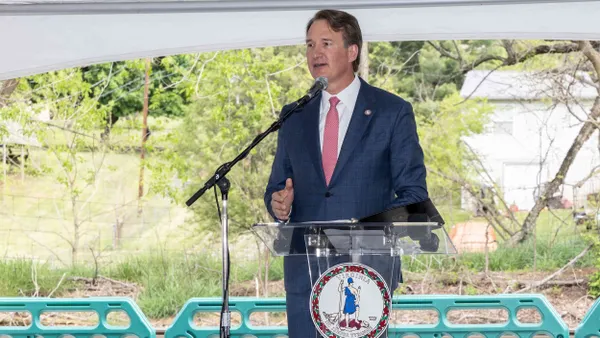Dive Brief:
- Lyft has teamed up with Detroit's bike-share operator, MoGo, to offer customer discounts, according to Detroit Metro Times and others.
- During a six-month pilot program, Lyft passengers will get a $5 discount if they are picked up or dropped off at one of MoGo's 43 bike-share stations.
- Customers will have to be MoGo daily, monthly or annual pass holders to receive the discount.
Dive Insight:
This partnership continues Lyft's growing efforts to promote multi-modal transit. The company's Detroit partnership and discount are similar to those in others areas, such as with Florida's privately operated train system, Brightline, and Charlotte, NC's public transit system. Last month the company also offered Chicago drivers $550 in ride-share, ZipCar, public transit and bike-share credits if they would ditch their cars for a month. Lyft's acquisition of bike-share operator Motivate this summer further solidified its quest to become an overall transit company.
Competitors also are getting in on the trend of creating integrated transit companies, as highlighted by Uber's CEO recently saying that moving the company beyond ride-sharing is very valuable and no one product can serve the giant mobility market.
It is also in keeping with Detroit's commitment to pilot programs that help reduce reliance on personal vehicles and help underserved neighborhoods connect with transit. Already, the city partners with Lyft to provide credits to riders who use certain bus stops between midnight and 5 a.m. Detroit's Chief of Mobility Innovation Mark de la Vergne told Smart Cities Dive earlier this year that they are "starting small" and building relationships with private companies on such partnerships.
Lyft repeatedly has stated its intention to drastically reduce personal vehicle ownership. Offering customers discounts on certain first mile/last mile services could introduce some people to modes of transportation that they otherwise would not have explored. The tricky part is getting customers to consistently use alternative forms of transportation to decrease single-passenger vehicle trips in the long run.












